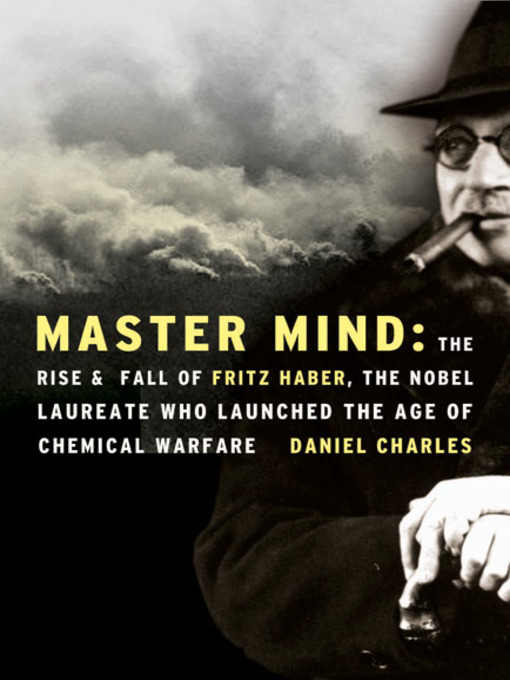
Master Mind
The Rise and Fall of Fritz Haber, the Nobel Laureate Who Launched the Age of Chemical Warfare
کتاب های مرتبط
- اطلاعات
- نقد و بررسی
- دیدگاه کاربران
نقد و بررسی

May 16, 2005
Fritz Haber (1868–1934), winner of the 1918 Nobel Prize for chemistry, was, in Charles's eyes, a "modern Faust": "willing to serve any master who could further his passion for knowledge and progress." Having discovered how to manufacture nitrogen-based fertilizer, which allowed the increase of crop production needed to feed an exploding human population, he also developed the first poison gas, used infamously in WWI at Ypres on April 22, 1915. It's this harrowing moral thicket that most fascinates Charles (Lords of the Harvest
) in this overly sympathetic biography of the first "scientist-warrior." Haber was passionately committed to German nationalism (Jewish by birth, he converted to Christianity in order to assimilate), and he devoted his skills to Germany's cause in WWI. Approximately a week after Ypres Haber's wife, a scientist believed to have opposed the use of poison gas, committed suicide. Charles, a former NPR correspondent, strays from objectivity, frequently offering his own judgments and opinions, and he sees Haber's life as a cautionary tale: "ometimes," he concludes, "it is the duty of an honest scientist" to refuse to put science in the service of national military goals."B&w photos. Agent, Katinka Matson
.

August 15, 2005
In recent years, the "niche history" genre of science writing has become so common that it can now officially be called formulaic: find an obscure person responsible for some long-forgotten discovery or technical accomplishment and recount his or her successes and setbacks, triumphs and tragedies, all with an eye toward the lessons learned and how the person remains relevant today. Fritz Haber (1868 -1934) -a Nobel prize -winning chemist who synthesized the nitrogen fertilizers that revolutionized the agricultural industry and was chiefly responsible for Germany's World War I chemical weapons program -fits that bill nicely. In this vivid, fast-paced, economically written biography, technology writer Charles ("Lords of the Harvest: Biotechnology, Big Money, and the Future of Food") depicts Haber as a profoundly driven man with strong nationalist loyalties, characteristics that served him in some respects but triggered his downfall in others. Occasional departures from straight biography (where, for example, the author discusses nitrogen's place in contemporary times and its consequences) provide welcome and informative digressions. Niche histories are popular, so this book may well find an audience, but trends in popular science titles tend, by their very nature, to have limited shelf lives. An optional purchase. -Gregg Sapp, Science Lib., SUNY at Albany
Copyright 2005 Library Journal, LLC Used with permission.

July 1, 2005
Charles delivers an eminently readable account of German chemist Fritz Haber's life (1868-1934) and precepts. Despite Haber's scientific and financial success--he became wealthy from, and received a Nobel Prize for, his co-invention of the process underlying the chemical fertilizer industry--he ended up disgraced, doubting his own lifelong values. A Jew in imperial Germany, the young Haber enthusiastically embraced the country's high-velocity industrialization and its intense nationalism. Charles' descriptions of Haber's education and positions are enhanced by an astute estimation of his motivations and character: extroverted and not reflective, Haber was optimistic about technology, gregarious, a poor husband, and quite the superpatriot. Seizing the last trait as a tragic flaw, Charles is sympathetic to Haber's fate, if not to the simplicity of his maxims of duty and loyalty, which, despite Haber's vital contributions to Germany's armaments production in World War I, did not protect him from the early stages of Nazi persecution. A perceptively intelligent writer, Charles, one senses, is the biographer Haber would have wanted.(Reprinted with permission of Booklist, copyright 2005, American Library Association.)

























دیدگاه کاربران